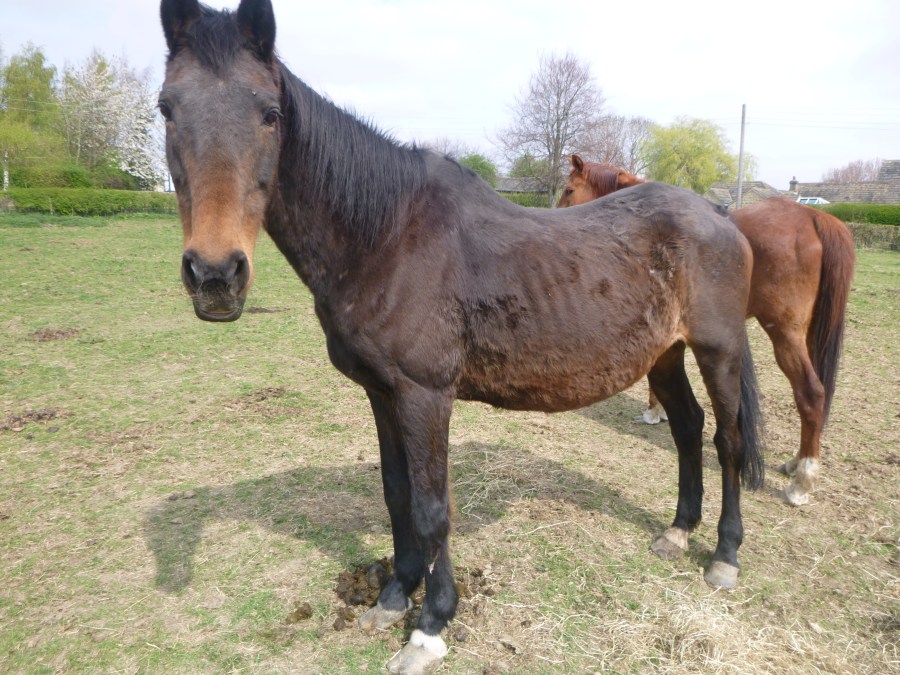Three horses who were left to suffer with overgrown hooves, lice infestations and inadequate dental care are on the road to recovery and looking for new homes.
Sam, a 19-21-year-old chestnut thoroughbred gelding, Pepsi a 17-23-year-old bay thoroughbred mare and Tony, a piebald Shetland gelding aged around 17 – were living in hazardous conditions in a field off School Lane, Wike, in West Yorkshire in April 2020.
Their owner, Dianne Cox, 64, of Churchill Flats, Poole in Wharfedale, had denied neglecting the horses but was found guilty of two animal welfare offences following a trial at Kirklees Magistrates Court on 14 January, 2022 and banned from keeping equines for 24 months.
The court also imposed a deprivation order on Sam, Pepsi and Tony.
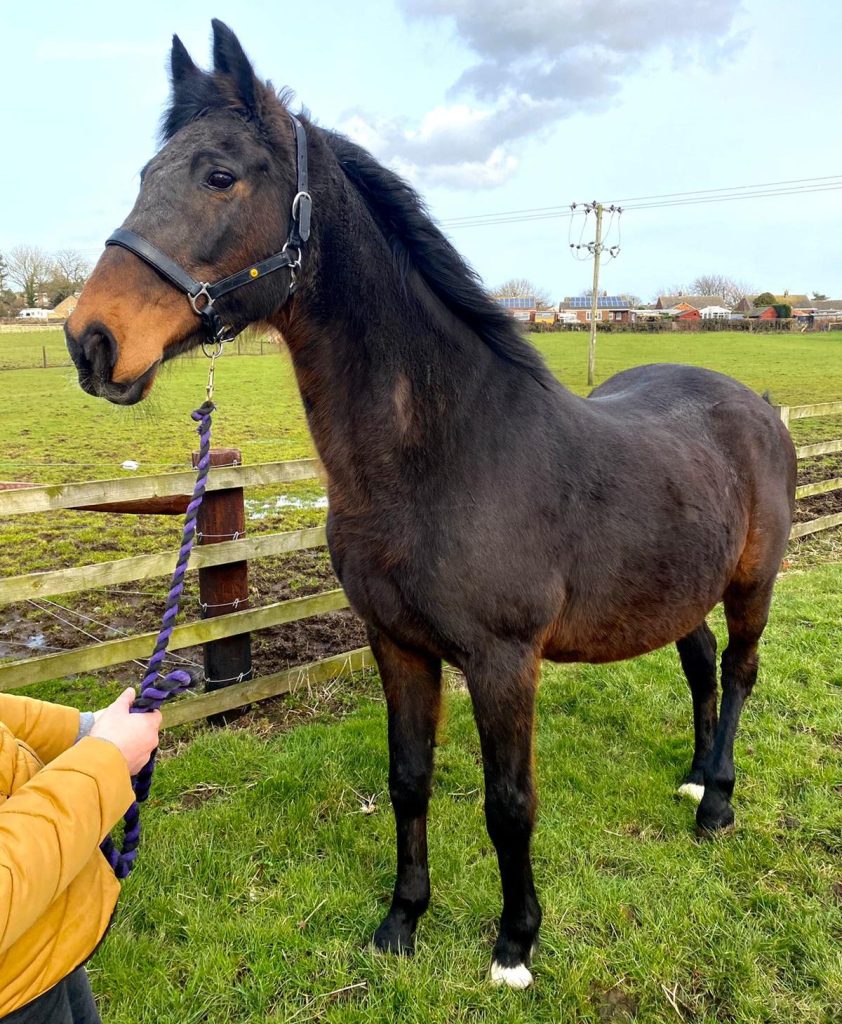
Pepsi now. She is also pictured at the top of the report, prior to her recovery. Credit: RSPCA
Cox appealed her conviction and sentence at Leeds Crown Court shortly after the trial concluded but abandoned it on 26 January this year, meaning the RSPCA, which has met the cost of caring for the horses at a private equine facility since the start of the investigation, can now legally begin the process of rehoming them.
“After nearly three years, we’re pleased that this long-running case has finally concluded and we can, at last, start to find permanent new homes for Sam, Pepsi and Tony,” said RSPCA inspector Kris Walker, who led the investigation for the animal welfare charity.
“The contrasting pictures of the horses now and then speak for themselves, and we’d like to say a huge thanks to the staff at the equine yard who have supported them on what has been a very long journey. It’s clear that once they started to receive appropriate nutrition, endoparasite care and dental treatment, they started to go from strength to strength, although Sam is likely to be permanently lame to some degree and will need closely monitoring for the rest of his life due to the chronic neglect of his hooves.”
Concerns for the horses’ welfare
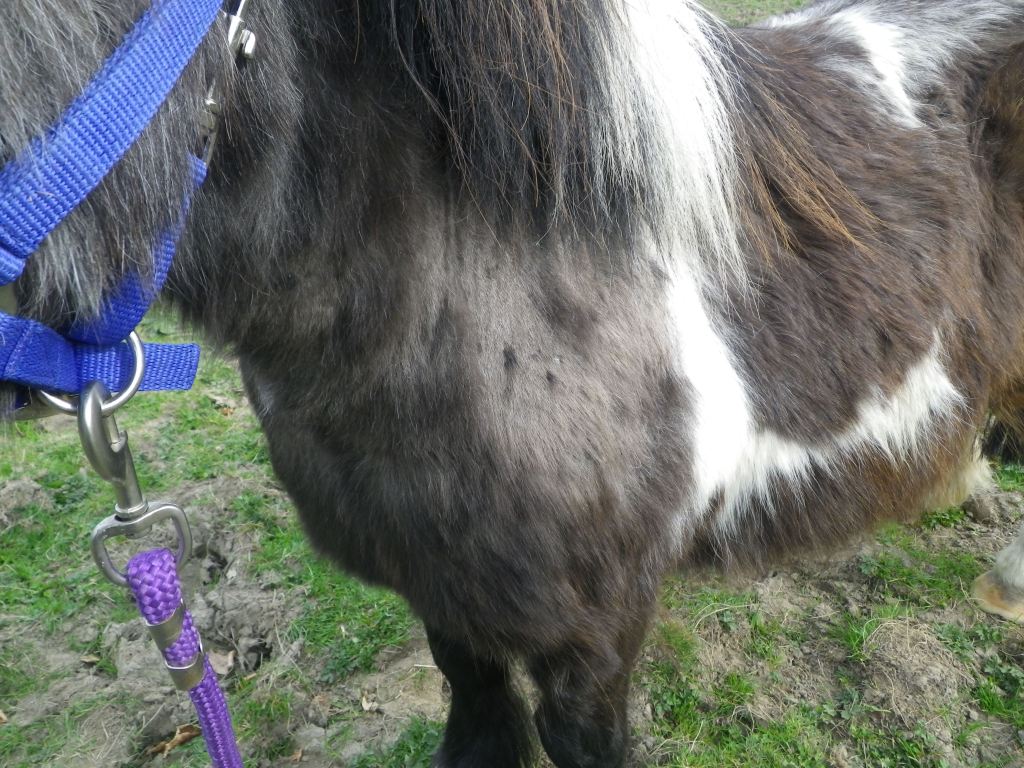
Tony before his rescue. Credit: RSPCA
At the trial the court heard how inspector Walker visited the field in Wike on 12 April, 2022 following concerns for the horses’ welfare and they were seized by police on the advice of a vet who attended the location. Grazing at the site was extremely sparse, fencing was in a state of disrepair and loops of sheep netting and loose barbed wire had the potential to cause injury.
The court heard Cox had previously been warned by RSPCA officers in 2018 and 2019 about the condition of her horses and given notices to improve their welfare but had failed to heed advice.
Sam was found to be in lean to poor bodily condition with his ribs, hips and pelvis visible. His hooves were severely overgrown, splayed and cracked, causing him to trip on both front feet when he walked. He was also lame and suffering from laminitis. Pepsi was in a similarly malnourished body condition, while Tony had suffered patchy hair loss as a result of an untreated lice infestation, which was present in all three animals.
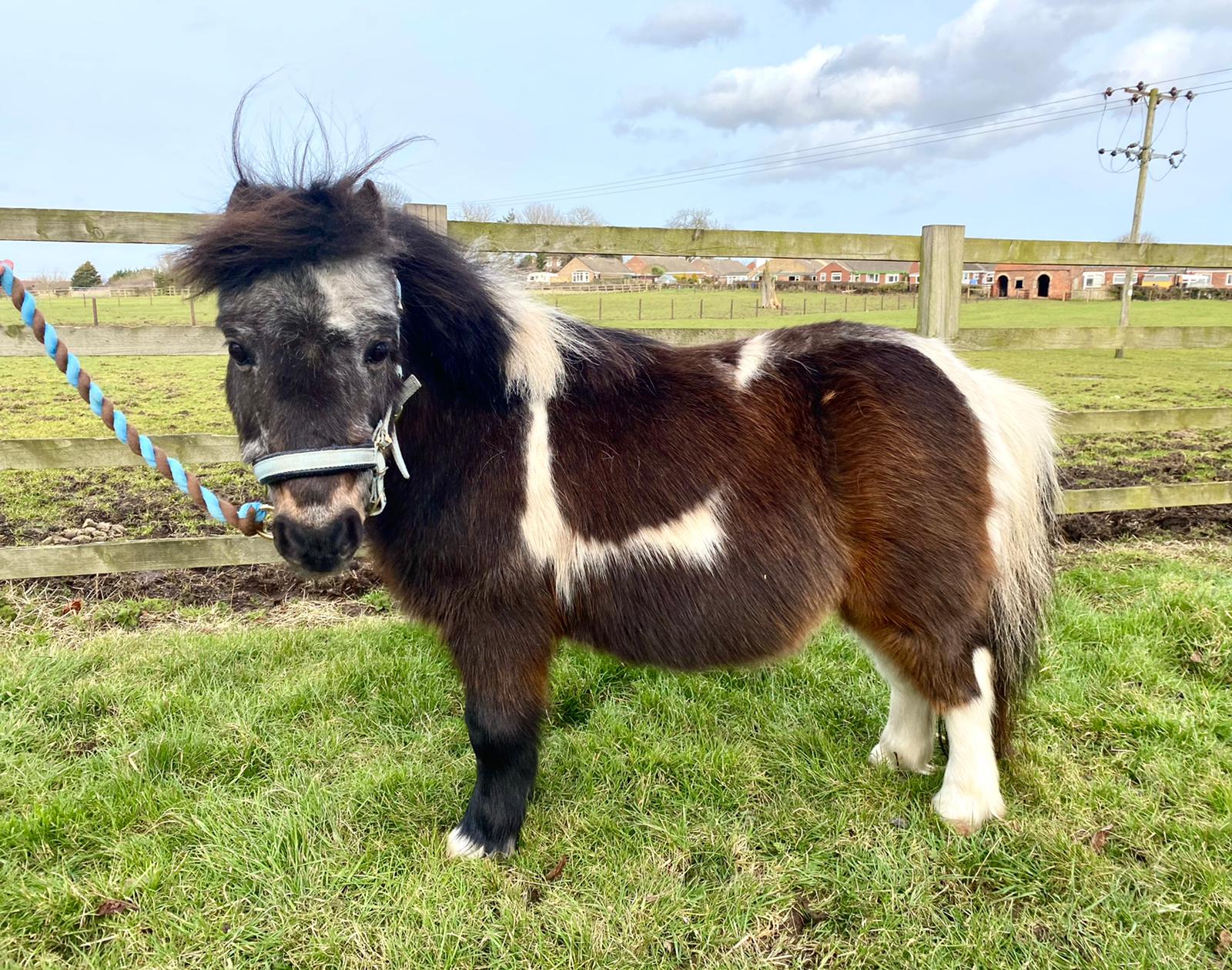
Tony now. Credit: RSPCA
A vet who gave evidence at the trial said the horses had suffered because Cox had failed to take preventative health care measures to protect them from pain, injury, suffering and disease.
She said that in her opinion, Sam had not received any farrier care for six months or dental work for 12 months. Pepsi’s hooves had not been trimmed for a minimum of four to five months and there was no evidence her teeth had been looked at within the last two years, as was the case for Tony’s. All three had dry, patchy and poor quality coats and lice infestations which had been present for a minimum of ten days.
“The grass cover on the field was extremely sparse and would not support the nutritional requirements of the horses,” the vet said. “There was a small amount of hay provided but not enough to support feeding the three of them within the field for the day, given the sparsity of the grass.
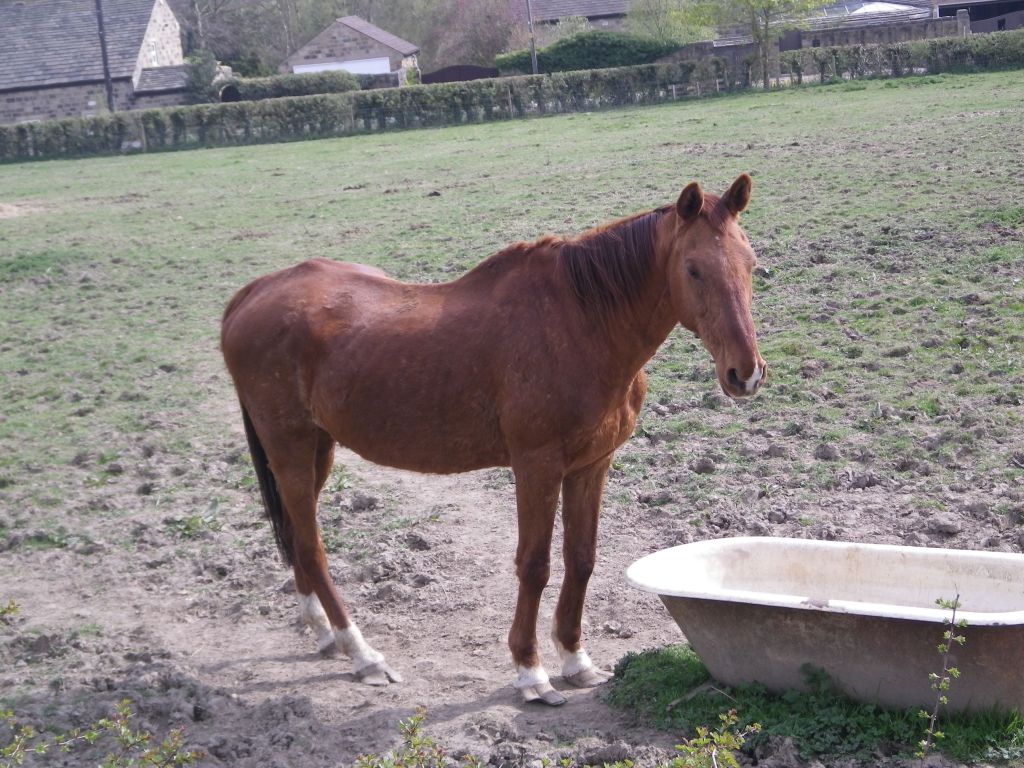
Sam before. Credit: RSPCA
“The basic needs of these horses had not been met, with all of the problems identified being part of basic horse husbandry. All these issues should be easily recognised and rectified by a responsible owner.”
In mitigation, the trial was told that Cox had 30 years’ experience of breeding horses and had appropriate qualifications. Her solicitor said the offence had arisen because of her considerable difficulty in locating a farrier. He said there was evidence she had one booked for 20 April – eight days after the horses were removed from the field – and that she was also purchasing regular food from an agricultural supplier.
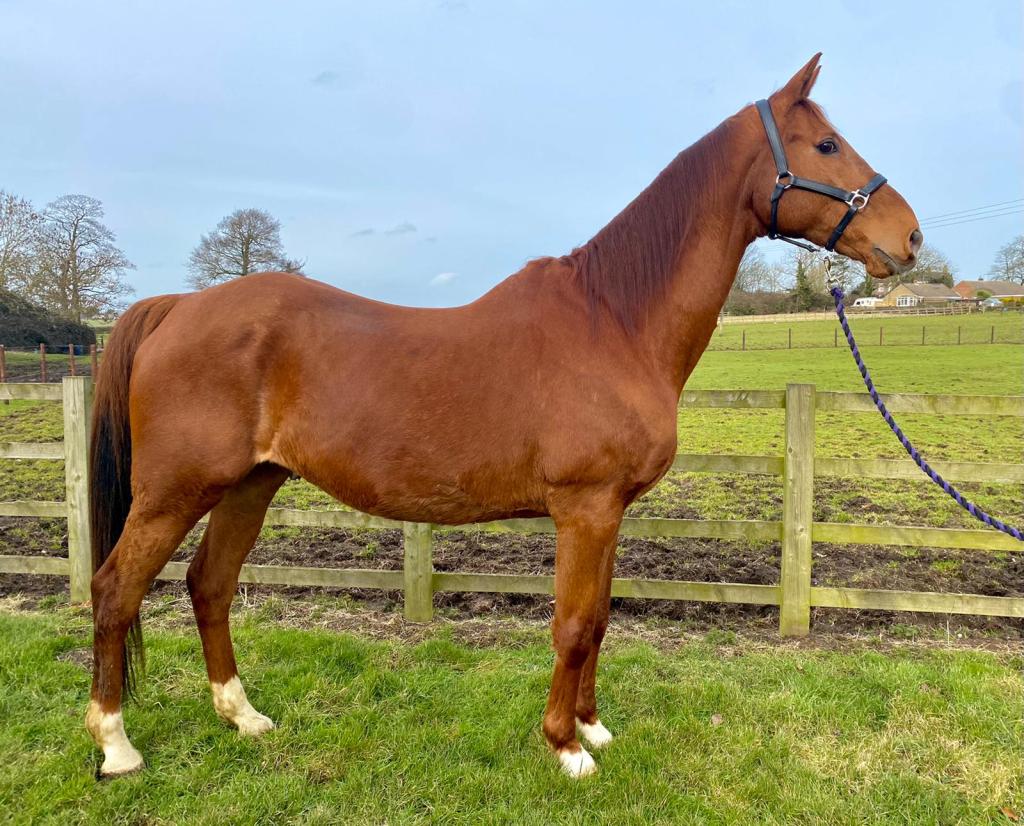
Sam today. Credit: RSPCA
Check out our subscription offer

